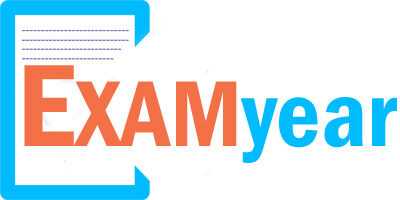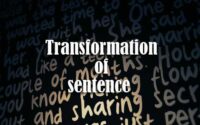Narration Change of Assertive Sentence
Are you eagerly waiting for the narration change of assertive sentence exercise? Don’t you have enough money to buy books for preparing the narration change of assertive sentence written exam? Here, we have attached the last 5-year narration change of assertive sentence Question Paper Pdf. Refer the narration change assertive sentence exercise before starting the preparation. Reading the direct indirect assertive sentence exercise Old Papers not only helps you to be aware of the previous year questions. But also, you can sharpen your competitive examination, Skills.

Statement or Assertive Sentences Conversion of Direct Speech into Indirect General Rules
(a) The conjunction that is generally used before the reported speech in the form of a statement.
Examples:
| Direct | Indirect |
| He says, “He will come”. | He says that he will come. |
| I said, “She will dance”. | I said that she would dance. |
(b) If the reporting verb is in the present or future tense, the tense of the verb in the reported speech is not changed at all.
Examples:
| Direct | Indirect |
| Ram says, “I shall go.” | Ram says that he will go. |
| He has said, “I went.”‘ | He has said that he went. |
| You will say, “I am ill.” | You will say that you are ill. |
| I shall say, “I did it”. | I shall say that I did it. |
(c) If the reporting verb is in the past tense, change the verb in the reported speech into the corresponding past form.
Example:
| Direct | Indirect |
| He said, “I am ill.” | He said that he was ill. |
| He said, ‘I do it.” | He said that he did it. |
| He said, “I am doing it.” | He said that he was doing it. |
| He said, “I have done it.” | He said that he had done it. |
| He said, “I did it.” | He said that he had done it. |
| He said, “I shall do it”. | He said that he would do it. |
| He said, ‘I can do the work.” | He said that he could do the work. |
| He said, “I may go there.” | He said that he might go there. |
| He said, “I was doing it.” | He said that he had been doing it. |
| He said, ‘Ram will go.” | He said that Ram would go. |
| He said, “I shall go, but you will stay”. | He said that he would go, but I should stay. |
NOTES: (i) The following points on punctuation marks should be carefully noted:
- The actual words quoted in the direct speech are put within inverted commas (….).
- No inverted commas should be used in the indirect speech.
- The reported speech in the direct narration begins with a capital letter and it is preceded by & comma.
- In the indirect speech, no comma should be used after the reporting verb.
(ii) To express simple futurity, we use shall in the first person and will in the second and third persons. So, in the last two examples, I shall in the Direct becomes he would in the Indirect. For the same reason, in the last example, you will in the Direct becomes I should in the Indirect.
(d) If the Direct speech states a universal truth or a habitual fact, the tense of the verb in the reported speech is not changed.
Examples:
| Direct | Indirect |
| He said, “Honesty is the best policy.” | He said that honesty is the best policy. |
| He said, “God is good.” | He said that God is good. |
| He said, “I take bath in the Ganga every morning.” | He said that he takes bath in the Ganga every morning. |
(e) The Indirect speech should correspond in the persons of pronouns and verbs to the persons of the individuals in the Direct speech.
Examples:
| Direct | Indirect |
| I said to him, “You are wrong.” | I told him that he was wrong. |
| He said to me, “I shall go, but you will stay.” | He told me that he would go, but I should stay. |
NOTES: (i) Boys are often confused when changing the persons of the reported speech. It may help them to remember that the first person (I, we, us, etc.) of the Direct speech is changed into the person of the speaker, and the second person (you, your, etc.) of the Direct speech is changed into the person of the man to whom the speech is addressed. Note the examples given above.
“Said to him”, etc. before that are not good English; write “told him”, “told me,” etc.
(ii) When there is uncertainty as to the particular person to whom the pronoun in the Indirect speech refers, the name of the person should be placed in brackets.
Examples:
| Direct | Indirect |
| He said to Ram, “You are wrong.” | He told Ram that he (Ram) was wrong. |
| Hari said to Jatin, “You will pass”. | Hari told Jatin that he (Jatin) would pass. |
(iii) Sometimes the introductory portion is left out and the speech only is given. To turn such speeches into the Indirect form, the sentence should begin as He told Ram, or He told me or I told her, or something like this. Thus,
Examples:
| Direct | Indirect |
| I cannot do it. | He told me (or, I told him or you told me) that he (or I or you) could not do it. |
| This is a nice house. | He says (or, He is saying or he will say) that this is a nice house. |
Work Out Examples
| Direct | Indirect |
| He says, ”I am happy”. | He says that he is happy. |
| She says to me, “You are wrong”. | She tells me that I am wrong. |
| You shall say, “I was ill”. | You shall say that you were ill. |
| The teacher says. “The sky is blue.” | The teacher says that the sky is blue. |
| He says, ‘Ram will be angry. | He says that Ram will be angry. |
| You will say, “Madan is rich.” | You will say that Madan is rich. |
| He says, “‘I am playing”. | He says that he is playing. |
| Arun says, “I was ill.” | Arun says that he was ill. |
| He said, ”Ram is happy.” | He said that Ram was happy. |
| I said, “You were present. | I said that you had been present. |
| Ramen said to me, “I do it.” | Ramen told me that he did it. |
| The girl said, “I shall dance.” | The girl said that she would dance, |
| You said, ‘I am playing.” | You said that you were playing. |
| He said, “I was reading.” | He said that he had been reading. |
| Father said, “The sun rises in the east.” | Father said that the sun rises in the east. |
| The boy said, “I play in the in the field everyday. | The boy said that he plays in the field everyday. |
| He said, “I have done it.” | He said he had done it. |
Change to Reported Speech Exercises
1. You said, “I am singing a song”.
2. He said, “l am studying then”
3. The CBI announced, “We have taken the correct decision.”
4. He said, ‘I shall go.’
5. Teacher said, “Bangladesh become free in 1971.”
6. They said, “We are writing now.”
7. He said, ‘They were making a noise.’
8. He said, “I get up from bed early everyday.”
9. He said ‘I am reading.’
10. The teacher said, “The change of seasons occurs due to the annual revolution of earth.”
| Rules | Worksheet |
| Exclamatory Sentence | Exercise 1 |
| Imperative Sentence | Exercise 2 |
| Interrogative Sentence | Example 1 |
| Assertive Sentence | Example 2 |
| Example 3 |
11. He said to me, “I do the work”.
12. The doctor said, “I had gone to visit some other patients.
13. He said, ‘I can do it.’
14. I said to him, ‘You have taken my pen.”
15. He said to me, “I was reading a book.”
16. I said, “I shall go to the market today.”
17. Kabir said to his mother, “Our team has won the match.”
18. Mother will say, ‘I am all right.”
19. He said, “I write letter on Sundays.”
20. The mason said, “I was building the house,”
21. Soham said to Milan, ‘I am very lonely.”
22. He said, ‘l helped the boy.’
23. Amir said to his friend, “You are fine.”
24. The boys said, “We have not done anything wrong.”
25. He said, ‘I have seen the bird.’
26. Mother said to me, “You had promised me not to do it again.”
27. Binay said, “I will do the work here and now.”
28. He said, “We should do our duties.”
29. He said, ‘I have been reading.’
30. The old man said, ‘Honesty is the best policy.”
31. Brother said to me, “I came then”
32. Mita says to Bina, ‘I am ill.”
33. Sandip said to Mohor, “We must obey the laws of the country.”
34. Grandmother said, “I shall tell you a story.”
35. The teacher said, “I was coaching the boy.”
36. He said, ‘I want a pen.’
37. The commander said to the soldier, “You shall do extra duty.”
38. They shouted, “We want revenge.”
39. Biman said, “l walk for two hours every morning.”
40. The officer said, “I issued the order yesterday.”
41. The science, teacher said, ‘oil floats on water.”
42. Prasun said to me, “You will meet me tomorrow.”
43. The blind man said, ‘I have been singing since morning’.
44. The salesman said, “I brought fresh fruits.”
45. Papai said to his friend, “Our school was closed yesterday.”
46. The girls said. “We shall listen to you very attentively.”
47. The child said, “I went to the zoo this morning.”
48. I am wrong, “he says”.
49. The worker said, “I have completed my work.”
50. He said to him, “I shall be reading then.”
51. She said, “We went to the zoo yesterday”.
52. He said, “The stars are shining brightly.”
53. The boy said, “I have broken the cup.”
54. I said to him, ‘You are a thief.”
55. Anju Bobby George said, “I am going to Athens.”
56. Samir said, “We must finish the work today.”
57. My father said, “Man is mortal.”
Answers Sheet of Above Exercise
1. You said that you were singing a song.
2. He said that he was studying.
3. The CBI announced that they had taken the correct decision.
4. He said that he would go.
5. Teacher said that Bangladesh becomes free in 1971.
6. They said that they were writing then.
7. He said that they had been making a noise
8. He said that he gets up from bed early everyday.
9. He said that he was reading.
10. The teacher said that the change of seasons due to the revolution of earth.
11. He said to me that he did the work.
12. The doctor said that he had gone to visit some other patients.
13. He said that he could do it.
14. I said to him that he had taken my pen.
15. He said to me that he was reading a book.
16. I said that I would go to the market that day.
17. Kabir told his mother that their team had won the match.
18. Mother will say that she is all right.
19. He said that he wrote letter on Sundays.
20. The mason said that he had been building the house.
21. Soham said to Milan that he was very lonely.
22. He said that he had helped the boy.
23. Amir told his friend that he was fine.
24. The boys said that they had not done anything wrong.
25. He said that he had seen the bird.
26. Mother reminded me that I had promised her not to do it again.
27. Binay said that he would do so work then and there.
28. He said that they should do their duties.
29. He said that he had been reading.
30. The old man said the honesty is the best policy.
31. Brother told me that he had come.
32. Mita says to Bina that she is ill.
33. Sandip told Mohor that they must obey the laws of the country.
34. Grandmother said that she would tell a story.
35. The teacher said that he had been coaching the boy.
36. He said that he wanted a pen.
37. The commander told the soldier that he should do extra duty.
38. They shouted that they wanted revenge.
39. Biman said that he walks for two hours every morning.
40. The officer said that he had issued the order the previous day.
41. The science teacher said that oil floats on water.
42. Prasun told me that I would meet him the next day.
43. The blind man said that he had been singing since morning.
44. The salesman said that he had brought fresh fruits.
45. Papai told his friend that their school had remained closed the previous day.
46. The girls said that they would listen to him very attentively.
47. The child said that he had gone to the zoo that morning.
48. He said that he was wrong.
49. The worker said that he had completed his work.
50. He said to him that he would be reading then.
51. She said that they had gone to the zoo the previous day.
52. She said that the stars were shining brightly.
53. The boy said that he had broken the cup.
54. I said to him that he was a thief.
55. Anju Bobby George said that she was going to Athens.
56. Samir said that they must finish the work that day.
57. My father said that Man is mortal.



